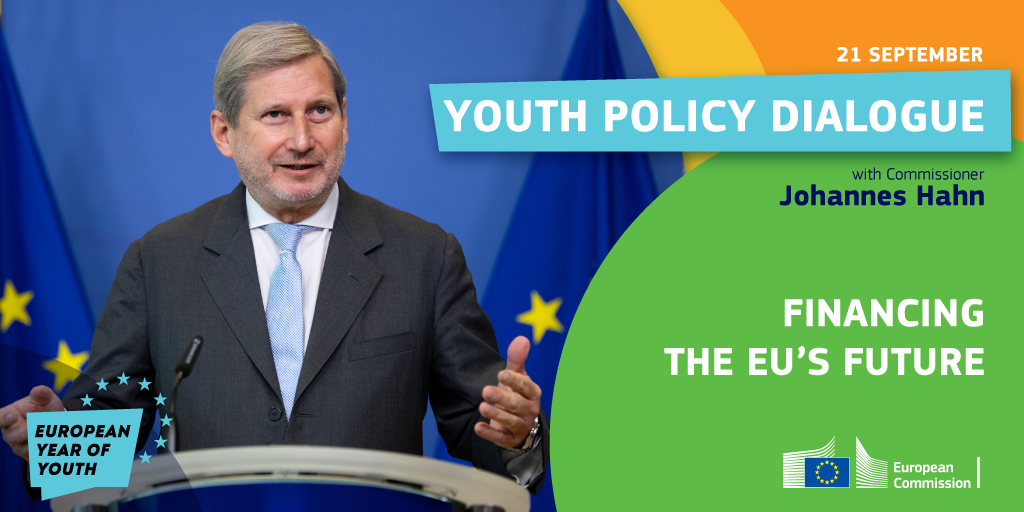Policy Dialogue with Commissioner Johannes Hahn: "Financing future EU priorities"

21/09/2022 14:30
21/09/2022 16:30
[CET] Central European Time
wifi_tethering Commissioner Johannes Hahn
The Policy Dialogue with Commissioner Hahn took place on 21st September 2022.
Did you miss the live discussion? Don't worry, you can watch the recorded version by accessing the European Commission live stream page.
In connection with the Youth Policy Dialogue on Financing future EU priorities, we asked the 12 youth participants from across Europe what they think the European budget should be focused on in the future. Find their answers in this video.
Take aways from the Dialogue
- Youth Test on the MFF and the Financial Regulation. The EU budget is a long-term financing tool of EU policies that spans over many years and impacts young generations (e.g. funds borrowed under NextGenerationEU will have to be repaid over the next 30 years). The decision taken on the EU budget allocations on both, expenditure and funding side, should take into consideration the interest and the impacts on the young generations.
- Increasing the size of the EU budget as well as competences of the EU as a whole. Recent crises showed the need for concerted efforts by all EU member states to tackle these crises together. However, the size of the EU budget and lack of competences of the EU in many areas such as health or defence hindered quick action. To counter this, the EU should be equipeed with both more financial and political firepower to act on behalf of all EU citizens and pro-actively address issues that concern all Europeans.
- Enhancing communication efforts in Member States. Currently, only citizens who actively look for information on the EU and its activities, will find it. Many EU citizens only hear about the EU when their national, regional or even local governments blame something on the ""bureaucrats in Brussels"". This is not an accurate picture of what the EU does, as all Europeans profit from the EU budget in one way or another. There is a clear lack of communication from Brussels to the average citizens. To combat this, communication activities in regions and cities across the EU must be increased considerably. This includes efforts for all citizens but also more specifically adding education on the EU in curricula both in schools and universities. All EU citizens should receive at the very least a basic education on how the EU works, what it does and what it stands for. Students benefiting from Erasmus should be trained and become EU ambassadors.
Activity details
| Activity format | Online |
| Starts on | 21/09/2022 14:30 |
| Ends on | 21/09/2022 16:30 |
| Timezone | [CET] Central European Time |
| Organised by | European Commission |
| Target age range | 18-24; 25-30 |
| Language of the activity | English |
| Type of activity | Webinar |
| Activity topics | Participation & engagement |
| Youth Goals this activity is linked to | Connecting EU with Youth |
| Related to the Conference on the Future of Europe | No |
| Number of expected participants (estimate) | 14 |